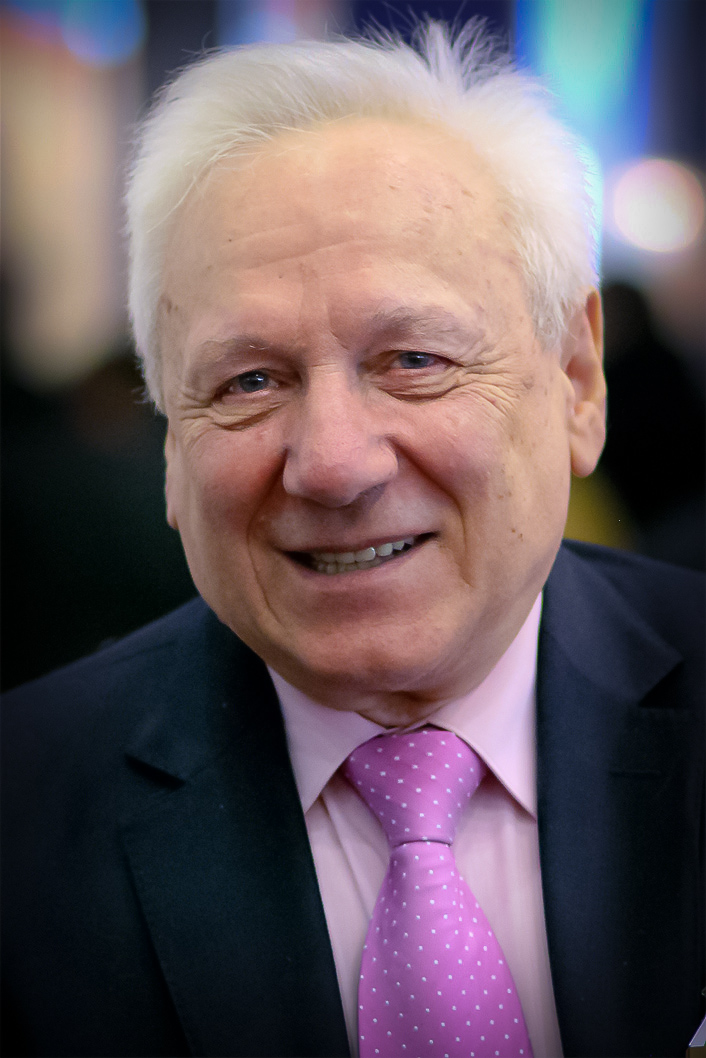1. Life
Sergey Filatov's life journey began in Moscow and was characterized by his dedication to engineering and public service, culminating in a significant political career.
1.1. Early Life and Education
Sergey Filatov was born on 10 July 1936, in Moscow, Russian SFSR, Soviet Union. His father, Alexander Fyodorovich Filatov (1913-1985), was a poet and a member of the Union of Soviet Writers. After graduating from high school, Filatov began his professional life as an electrical engineer assistant at the "Hammer and Sickle" metallurgical plant in Moscow. He pursued higher education at the Moscow Power Engineering Institute, from which he graduated in 1964 as an electrical engineer. He later attained the degree of Candidate of Sciences in engineering and, in 1984, earned a technical science doctorate.
1.2. Early Career
Filatov's early professional experiences were rooted in engineering and research. He worked at the "Hammer and Sickle" metallurgical plant in Moscow, where he was also involved in the design department and served as a Komsomol secretary. From 1966 to 1968, he was dispatched to Cuba as a technical advisor, working at the Jose Marti Metallurgical Plant. Upon his return in 1969, he joined the All-Union Research and Development Institute, specifically in the metallurgical engineering project department. He continued his research career, holding positions such as the director of the Institute of Electrical Automation and Continuous Processes. Since 1986, he served as the head of the department of control systems at the A.I. Tselikov Scientific Research Institute of Metallurgical Engineering. In 1988, as part of a collective, he was awarded the USSR State Prize for his work on the development and implementation of a resource-saving combined process of continuous casting and rolling of steels and alloys.
2. Main Activities and Achievements
Sergey Filatov's career was marked by significant contributions across political, social, and professional spheres, reflecting his commitment to public service and reform.
2.1. Political Career
Filatov's political journey began with his growing awareness of the need for reforms within the Soviet state system, leading him to become an active member of the reform movement. In 1990, he left the Communist Party of the Soviet Union and was elected as a People's Deputy of the RSFSR from the Democratic Russia movement. He became a member of the Soviet of the Republic, which was the lower chamber of the Supreme Soviet of Russia. During his time in the Supreme Soviet, he served on two key committees: the committee on freedom of conscience, religion, mercy and charity, and the committee on economic reform and property.
A pivotal moment in his career came during the August putsch of 1991, when Filatov notably headed the defense staff of the White House, playing a crucial role in defending democratic principles. In 1991, he was appointed secretary of the Presidium of the Supreme Soviet. By the end of that year, on 1 November 1991, he was elected First Deputy Chairman of the Supreme Soviet under Chairman Ruslan Khasbulatov, a position he held until 28 January 1993. During this period, he also became a permanent member of the Security Council of Russia.
From January 1993 to January 1996, Filatov held the influential position of Chief of the Presidential Administration of Russia. During this period, he also chaired the Expert and Analytical Council under the President of Russia and presided over the Presidential Commission on state awards in the field of literature and art. After leaving state service in 1996, he continued his political involvement as the deputy head of Boris Yeltsin's 1996 reelection headquarters. He led the Public Movement to Support the President (ODOPP) and subsequently the All-Russian Coordination Council (OKS), which managed the 1996 and 1997 election campaigns for Yeltsin-appointed governors.
2.2. Social Activities and Civic Participation
Beyond his official governmental roles, Sergey Filatov was actively engaged in various public and civic initiatives. He was a member of the Union of Journalists of Russia and served as the chairman of the Union of Writers of Moscow. In April 2006, he became the Chairman of the Expert Council of the "Attention" Foundation, an organization that notably hosted the first ADHD-themed forum in Russia. In March 2014, demonstrating his continued civic engagement, he signed an appeal that voiced opposition to the Russian government's policy concerning the annexation of Crimea.
2.3. Awards and Honors
Sergey Filatov received several significant state awards and professional honors throughout his career, recognizing his contributions across various fields:
- Order of Honour (20 July 2011) - awarded for his contributions to the development of national culture and art, and for many years of dedicated activity.
- Order of Friendship (5 July 1996) - bestowed for his services to the state and many years of conscientious work.
- Medal "Defender of a Free Russia" (5 August 1994) - recognized his fulfillment of civic duty in the defense of democracy and the constitutional order during the events of 19-21 August 1991, and his significant contribution to the implementation of democratic reforms, as well as strengthening friendship and international cooperation.
- Medal "In Commemoration of the 850th Anniversary of Moscow"
- Medal "Veteran of Labor"
- USSR State Prize (1988, as part of a collective) - for the development and implementation of a resource-saving combined process of continuous casting and rolling of steels and alloys.

3. Personal Life
Sergey Filatov was married to Galina Filatova. Together, they had two daughters, Marina and Maria.
4. Death
Sergey Filatov passed away on 25 August 2023, at the age of 87.